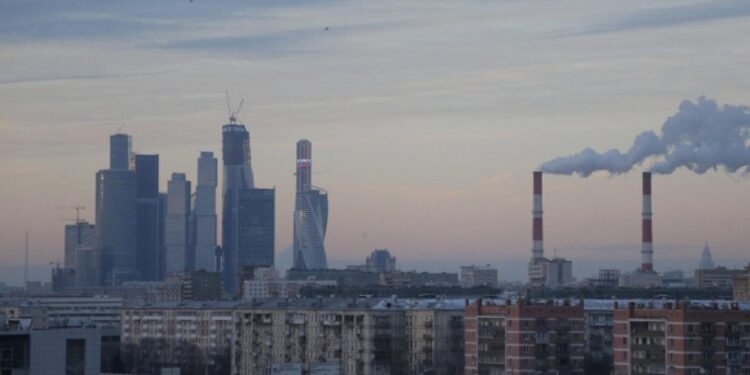8/28/2024–|Last update: 8/28/202401:08 PM (Makkah Time)
Despite Western sanctions imposed on Russia over its war in Ukraine, Moscow continues to record strong economic growth rates thanks to a network of intermediaries in Central Asia.
According to a report published on the Geopolitics website, Russia achieved economic growth of 3.6% in 2023, and the rate is expected to reach 3.2% in 2024, despite 14 sanctions packages imposed by the European Union so far.
Sanctions targeting Russian energy exports, particularly oil and gas, have not been enough to cripple the Russian economy.
This is due, according to the report, to continued government support for domestic consumption, in addition to “shadow brokers” of tanker ships that avoid sanctions, and most importantly, the major role played by Central Asian countries as economic intermediaries.
Flourishing in Central Asia
The figures show that Central Asian countries have experienced unexpected economic growth as a result of these dynamics. The report cites Kazakhstan as an example, as its exports to Russia increased from $40 million in 2021 to $298 million in 2023.
Kazakhstan’s imports of electronics from Europe have also increased significantly, indicating that Kazakhstan has become a middleman for the transfer of European products to Russia, significantly boosting its economy.
The economies of other countries such as Armenia, Azerbaijan, Georgia and Turkey also expanded in the same way.
According to a previous report by The Economist, EU exports to these countries increased by 50% in 2023 compared to 2021, reflecting a shift in trade away from Russia directly through intermediaries in Central Asia.
Secondary penalties
Faced with these challenges, the West has resorted to imposing secondary sanctions on companies in Armenia and Uzbekistan. However, this strategy appears to be more of a cat-and-mouse game, with new companies emerging to replace those blacklisted, according to Geopolitics.
Moreover, the strained relations with the Central Asian countries pose a threat to the European Union, which is now increasingly dependent on natural gas from countries such as Azerbaijan.
But there is some evidence that the sanctions are having an impact. According to a report published by “The Insider”, Russia’s imports from Turkey fell by 30% in six months, and trade with China also declined after a significant increase, due to increased caution in the banking sector.
But Geopolitics argues that this will enable Russia to continue to exploit its network of middlemen in Central Asia to circumvent sanctions, while the West faces significant challenges in trying to stop this clandestine trade flow that boosts the Russian economy.



